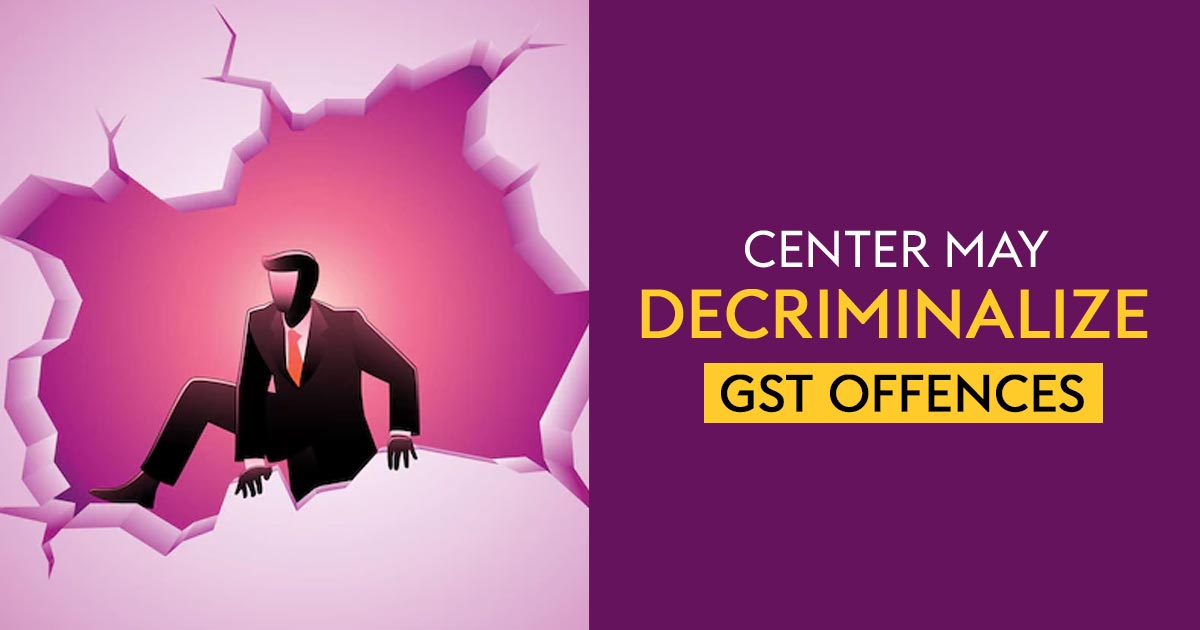
“A proposal is under consideration to raise the threshold to Rs 5 crore for initiating criminal prosecution. The matter will be put up before GST Council soon” said the senior officials.
GST evasion with Rs 2 to 5 cr shall draw three years in jail. If the tax evasion is up to Rs 2 crore then the jail would be for one year.
The government will make GST offences up to ‘5 crores compoundable and do away with the arrests and jail terms.
It is proposed that the government will make GST offences worth up to 5 crores compoundable and eliminate arrests and jail terms for offences up to that amount.
Decriminalization of GST Evasion
The GST investigation units of the central board of indirect taxes and costumes recommended the field formations not to initiate the prosecution against the offenders for the cases in which the GST evasion amount or misuse of the GST Input Tax Credit (ITC) would be less than Rs 5 cr.
Under Section 132 of the CGST Act, unfair credit for GST evasion is illegalized.
Some provisions that interrupt the Indian Penal Code that would not be required to be in the GST law would be verified by the government.
Motivate the Assessee by Reducing the Compounding Charges
For motivating assessee to compound their crimes rather than proceeding to litigation the compound levy for the crimes beneath GST shall be lesser.
Despite the industry’s seeking the decriminalize offences where there is involvement exceeding Rs 5 cr, the government provides no support to them. According to the administrators, a higher limit of prosecution can direct to tax evasion and can impact GST revenues.
Recommended: Fraudsters Mind vs Govt Intelligence for Fake GST Invoices
Under GST Act, the amount liable to get paid for compounding offences would be 50% of the tax amount engaged as per the minimum of Rs 10,000. The maximum amount for compounding is 150% of the tax or `30,000, whichever is higher.